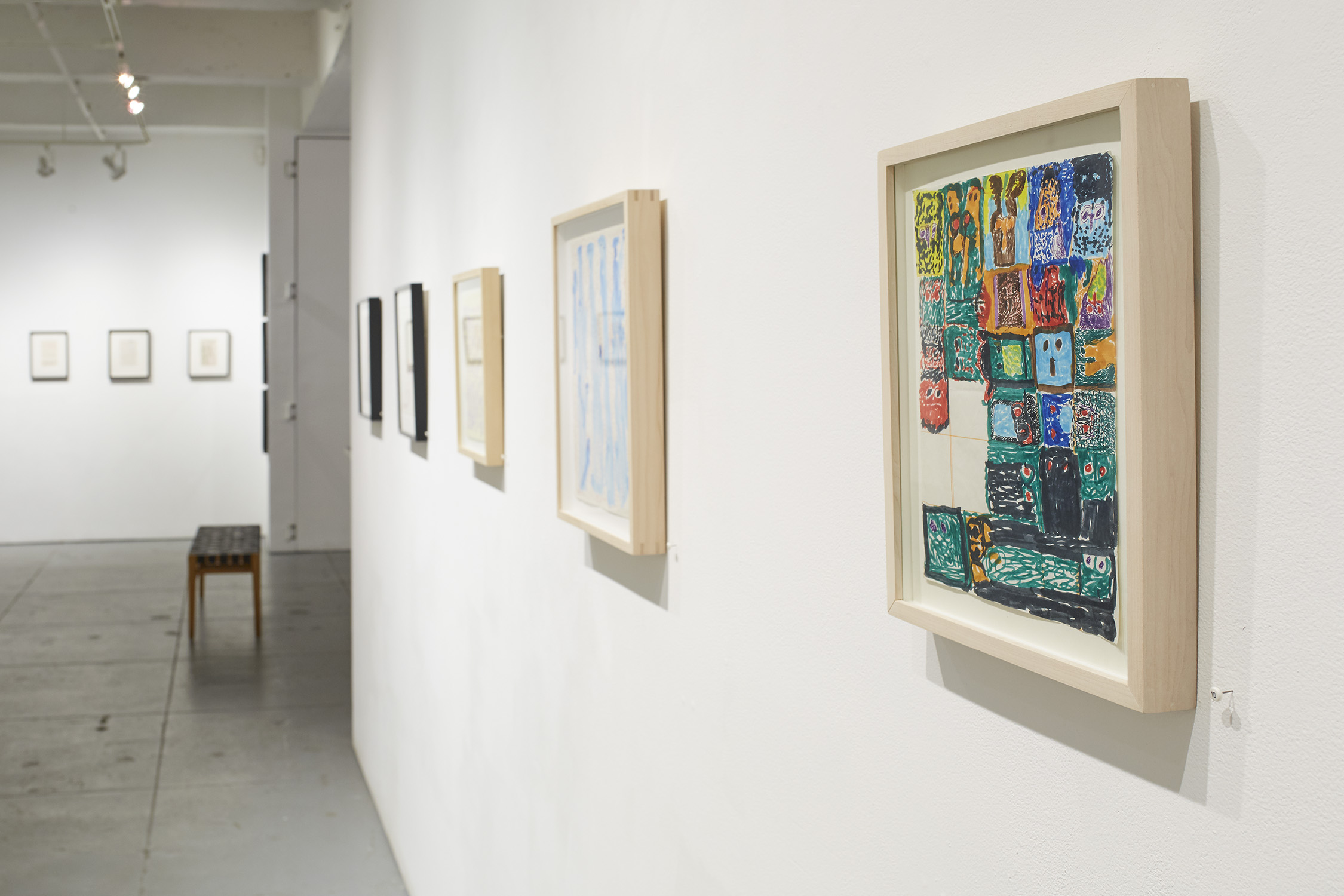EAGLE CROSSED THE SUN: VISIONARY WORKS BY J.B. MURRAY
(September 13 - November 3, 2018)
J.B. (John Bunion) Murray was born in 1908 in Glascock County, Georgia. In the history of African American non-mainstream artists Murray falls into the second generation, born after the 19th century and before 1950.
His important graphic abstractions come from a unique place in the annals of this art. His generation dealt with a harsh variation of survival for black Americans in the South. Many of the problems of that time, like Jim Crow laws that were not struck from the books until 1965, continued into the present despite institutional and popular denial. It was an era of poverty and racism exacerbated by the disillusionment of black Americans who fought as victorious heroes in the World Wars only to return to the same ugly visage of the Jim Crow years as when they left.
The church attended by black Americans at that time was not the same as the white church. Black Pentecostalists were possessed by the Holy Spirit and moved in ways closer to the Old Religion than to the mainstream church. The banning of drums in the 19th century had moved rhythms into the body itself as manifested in the ring shouts, expressed by clapping, tambourines, cymbals, guitars and the rhythmic breaking up of language.
J.B. Murray was always spiritual. He was a church-going Pentecostalist who ultimately became more and more involved in a cosmic battle between good and evil. He believed some people were saved and some were not, and the battle to save those who were tormented by evil became the subject of his Spirit-inspired drawings.
His beliefs were too radical even for the local parishioners. He was asked to leave his community church. Soon after he was institutionalized because of his fervid praying and blessing, but was released within a short period of time having been diagnosed not insane. Now validated, he was allowed back in church again, even delivering a sermon or two. Illiterate, he handed out scraps of paper covered in his spirit writing given to him by an ecstatic experience that changed his life forever. In the late 1970’s he received this vision in his garden while hosing his plants, in a flood of buttery yellow and rainbow light refracted by the waters that coated the world around him and covered his skin in gold. He looked up and saw a visionary eagle cross the hot yellow sun. Clearly the intensity of these colors was an integral part of his vision and subsequent art making.
Events led to his being given access to better artistic materials than he could find previously. He developed a unique style in which, through color and line, he drew the intense language given to him by the Spirit, which he read by looking through a bottle of well water. On paper and board he fought the battle for the Soul of Man. He drew with both hands. His process was not only the mechanical act of drawing, he fought for the salvation of souls with each mark . The drawings are living records of this visionary struggle. The natural abstraction comes from Murray’s burning need to communicate a moral standing in his own cohesive language. Murray died in 1988.
His work is in major museums including the Metropolitan Museum of Art, The Harlem Studio Museum, the Smithsonian Museum of American Art, the High Museum of Art, The Menil Collection, and the American Folk Art Museum.
Cavin-Morris Gallery is honored to represent the family estate with these rich dynamic evocations of man’s ancient spirit. Our exhibition will present three phases of Murray’s work, including three early pieces on cash register scroll.


